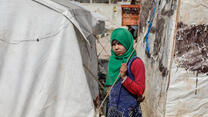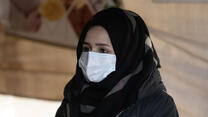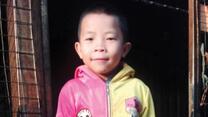Hila isn’t sure of her exact age—around 70, she guesses. The Syrian mother of 10 children fled Deir ez-Zor after the area was besieged by ISIS and her home was destroyed.
“We had a piece of land where my sons and I built three houses,” she says. “We had two acres where we used to plant cotton and vegetables. When the city came under attack, warplanes bombed our homes. That’s when we decided to leave.”
The family fled to Hassakah province in northeast Syria and then found shelter at Areesha camp, home to more than 9,000 displaced Syrians.
Lack of food and safe drinking water and outbreaks of infectious diseases are chronic concerns for Syrians living in Areesha.
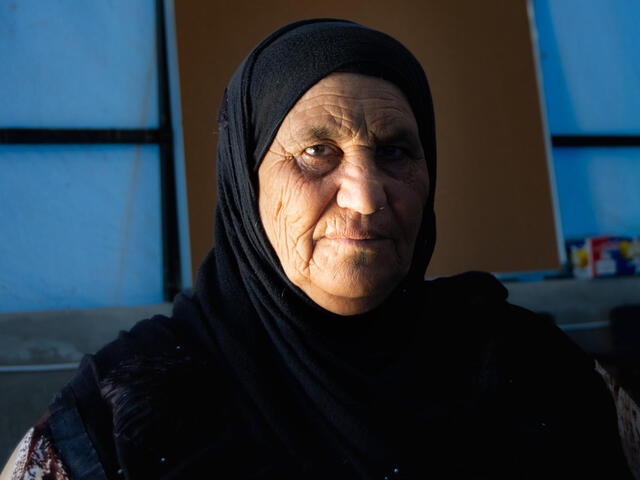
Hila fled Deir ez-Zor, Syria, after the area was besieged by ISIS and her home was destroyed. She enjoys visiting the International Rescue Committee women’s center where she takes classes with her granddaughter.
“Life is hard in Areesha,” says Hila. “We have no clothes that fit. More often than not, we don’t have enough food, and we have no money at all. The medical services here in the camp are very basic. I only have one kidney, the other one was removed, but there are no specialist services available.”
Life in the camp is brutal and unforgiving. Hila’s sons and daughters faced a difficult choice: find safety abroad or move to regions where work was available, and their children would have better options. Although one of her sons and granddaughter remains with her in the camp, it pained Hila to be without much of her family.
The International Rescue Committee is addressing the needs of people like Hila by establishing women’s protection and empowerment centres such as the one that opened in Areesha in January 2018.
The centres are places where women can get information, psychosocial support, attend classes on literacy, sewing, and other skills, and in general find a sense of community. It also offers specialised care for survivors of violence and abuse. Around 150 women visit the Areesha centre each month.
“I come to see the other women and to talk to them,” says Hila. Her granddaughter also attends classes at the centre. “She really enjoys them, too,” adds Hila. “She used to go to school and knows how to read and write, but she had to drop out because of the war.”
In addition to its programs for women and girls, the IRC offers a safe space for children to play and has a team of community health volunteers who identify those in need of medical care. We also provide specialised care for people with disabilities.
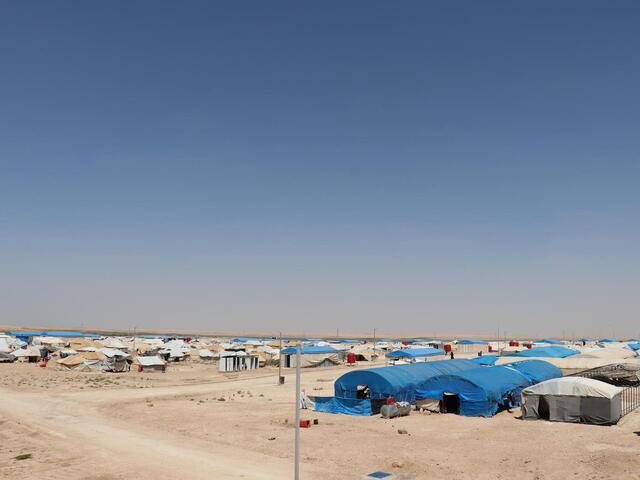
Many are living in extreme poverty in Deir ez-Zor province. Basic health services are scarce, and surgery, emergency care and treatment for chronic disease are in high demand. Despite these difficulties, Hila clings to the dream of returning to her home.
“I hope that things will get better, not only in Syria but in the whole region,” she says. “And I hope that can go back to my home and rebuild my house—like before.”
While the crisis in Syria affects everyone, women and children are particularly vulnerable to a range of safety issues, including sexual violence, child labour, and physical and mental trauma. With support from UK Aid, the IRC provides tailored support to women and girls in northeast Syria through community centers.
